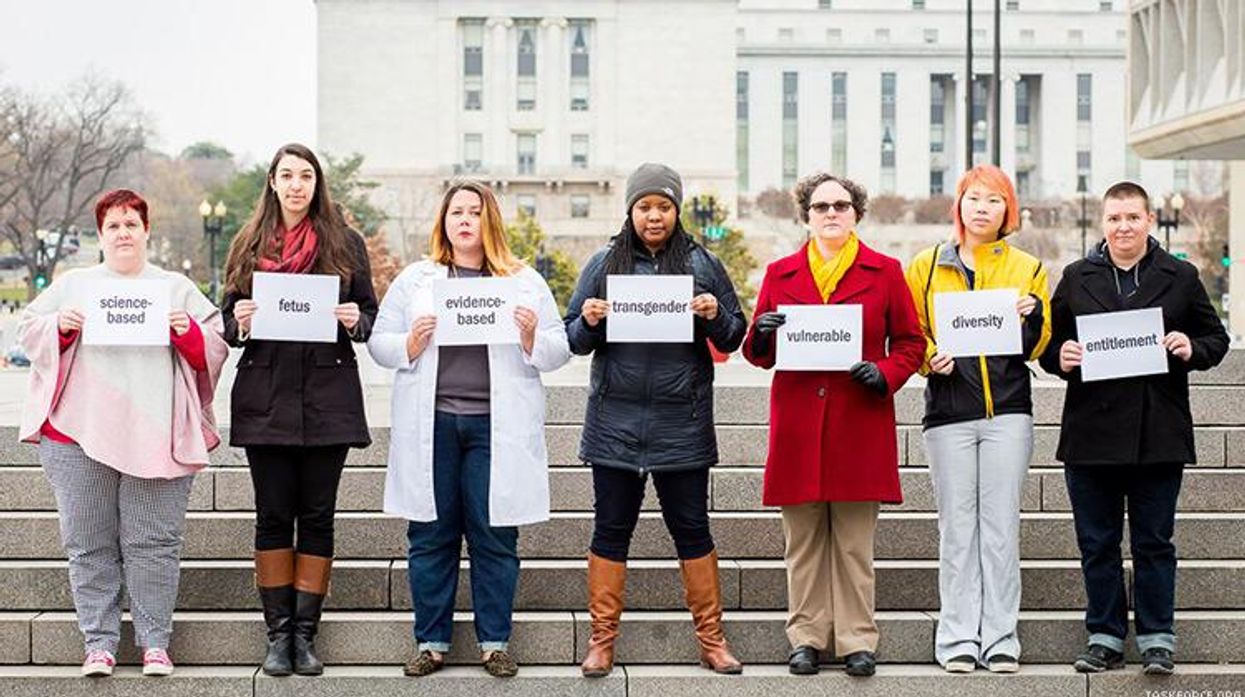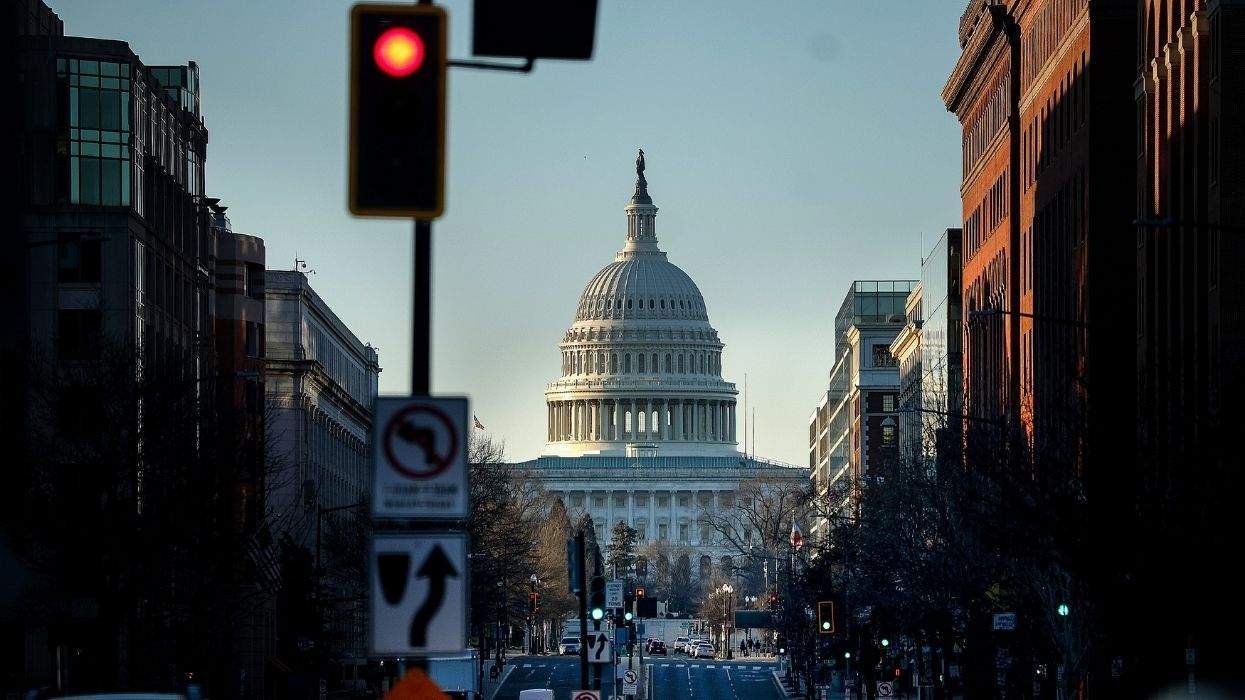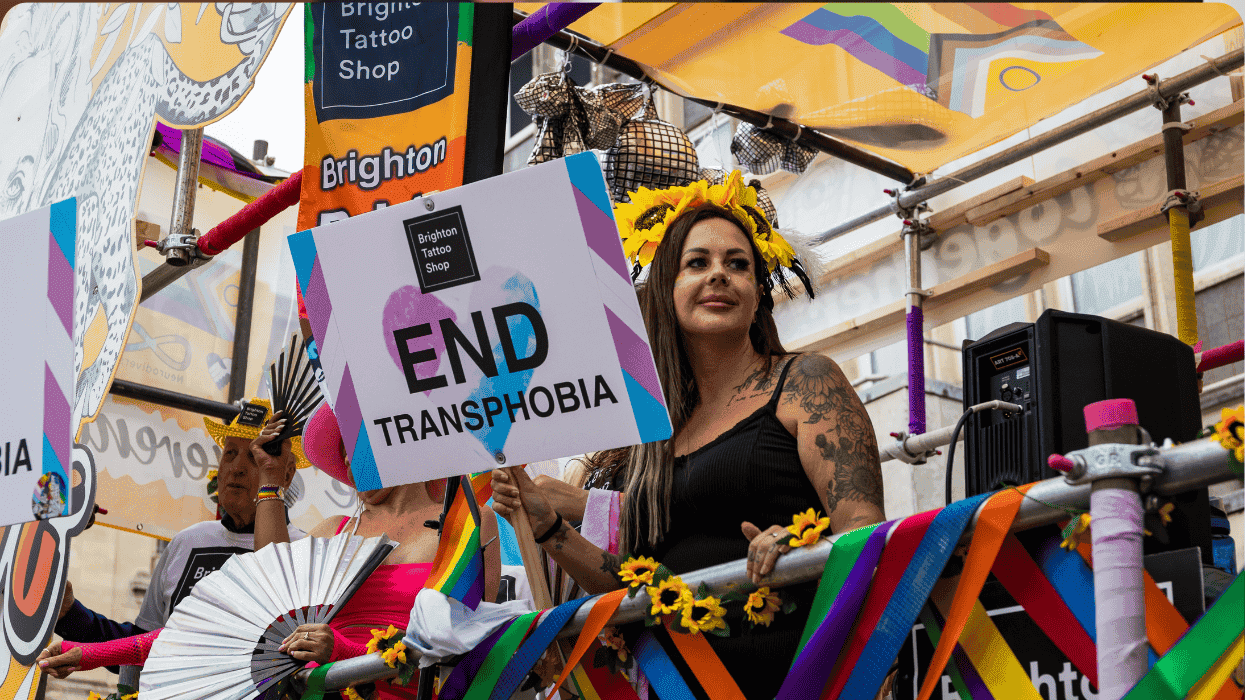Transgender, fetus, science-based, evidence-based, vulnerable, entitlement, diversity -- seven terms that have been thrust into the national spotlight after reports surfaced that federal officials would be censored from using these words for fear of having their budgets rejected. The LGBTQ community is no stranger to censorship. We know what it looks like, we know what it feels like, and we know what will happen if we don't stand up, call it out, and fight.
On December 16, word leaked that staff at the Centers for Disease Control and Prevention were told not to use words like "transgender," "fetus," and "evidence-based" in their budget reports. The next day CDC director Brenda Fitzgerald took to Twitter to claim "there are no banned words at CDC," but, we know better. We know what happens when words are banned, and we know what happens when institutions suggest that words not be used.
For women, for the transgender community, and for all of us whoare LGBTQ, censorship is personal, and that is why on December 20, the National LGBTQ Task Force, along with the National Partnership for Women & Families and our allies, stood on the steps of the Hubert H. Humphrey Building in Washington, D,C,. and told the CDC and the Department of Health and Human Services that we refuse to be silent.
We cannot be silent when the CDC or the White House attempt to wipe away any mention of transgender people and dismiss the use of science and evidence-based health research. We owe it to the fierce queer and transgender activists who came before us that fought for our rights. Activists whobattled censorship in court. Chanted "Silence Equals Death" and "We're Here, We're Queer" in the streets and forged many of the HIV/AIDS organizations that centered on the people most impacted -- men who have sex with men and transgender people.
Attempts to censor mention of the LGBTQ community isn't new: In 1978, state governments began introducing what came to be known as "no promo homo" legislation -- laws that ban discussion of homosexuality in a positive light in schools. The first of these laws, H.B. 1629, was passed in 1978 in Oklahoma. The National LGBTQ Task Force (then called the National Gay Task Force) challenged the law, arguing it all the way to the Supreme Court. The law was upheld in part, but the courts recognized that the breadth of its restrictions on free speech was unconstitutional.
Censoring mention of our community became all too real for me when I was in high school and tried to organize a space for young people to come together and talk about our their struggles with sexual orientation, gender identity, or gender expression. I and many of my friends were in need of support -- we were coping with family rejection, loneliness, and isolation, and many of us regularly dealt with acts of harassment and assault at school.
My school was afraid of losing funding for acknowledging the LGBTQ community existed, because that court case didn't end the debate. States and Congress pushed full steam ahead with legislation to ban our community's words. Over the next several decades, states passed different versions of these "no promo homo" laws, banning discussion of LGBTQ identity in a variety of ways.
The U.S. Senate got in on the act as well, recognizing the power to oppress that is inherent in control of language; in the 1980s, Sen, Jesse Helms sponsored a bill that banned the use of federal funds for HIV-related materials that "promote or encourage" homosexuality. The Helms Amendment held its grip two decades later. In the early 2000s, HHS officials sought to enforce the "no promo homo" amendment against HIV services that they thought were using pro-LGBTQ language.
HIV service providers, like the teachers and students in my high school and in schools all over the country, had to make a choice. Comply with censorship and keep receiving federal funds to do critical work, or stand up against censorship and risk losing access to resources that were benefitting LGBTQ people.
That was the legacy I inadvertently stumbled upon when I tried to start my group. We stayed silent. It felt easier to comply. We were young people, and our safety was constantly being threatened by our classmates, by people on the street, by our families, and by the institutions we turned to for help.
We knew that compliance -- that silence -- was an attack in its own right. It was as if we were being forced to give in to the stigma, to acquiesce to the school's belief that we deserved to be hidden, that our bodies, our lives, were anathema to the institution we hoped would be a space for safety.
Sadly, at the time, staying silent was the right choice for us. It isn't always safe to be out about your sexual orientation or gender identity. To this day, we lack comprehensive federal legislation protecting us from discrimination. Even where protections exist, many of us lack the resources to hold employers or schools or judges or police accountable for violating those laws. Disclosure can mean loss of work, of housing, or even of life -- just a few months ago, a transgender woman was stabbed 121 times for disclosing her gender identity.
We should not have to choose silence in self-defense. That's what we are fighting for: a world where everyone has the right and the power to be who they are. To self-identify in safety.
That is why we stood outside the Department of Health and Human Services, united with scientists and our partners in the reproductive health and justice movement, and named those seven terms:
Transgender. Fetus. Science-based. Evidence-based. Vulnerable. Entitlement. Diversity.
MEGHAN MAURY is the policy director of the National LGBTQ Task Force. You can learn more about Maury's work at thetaskforce.org.















